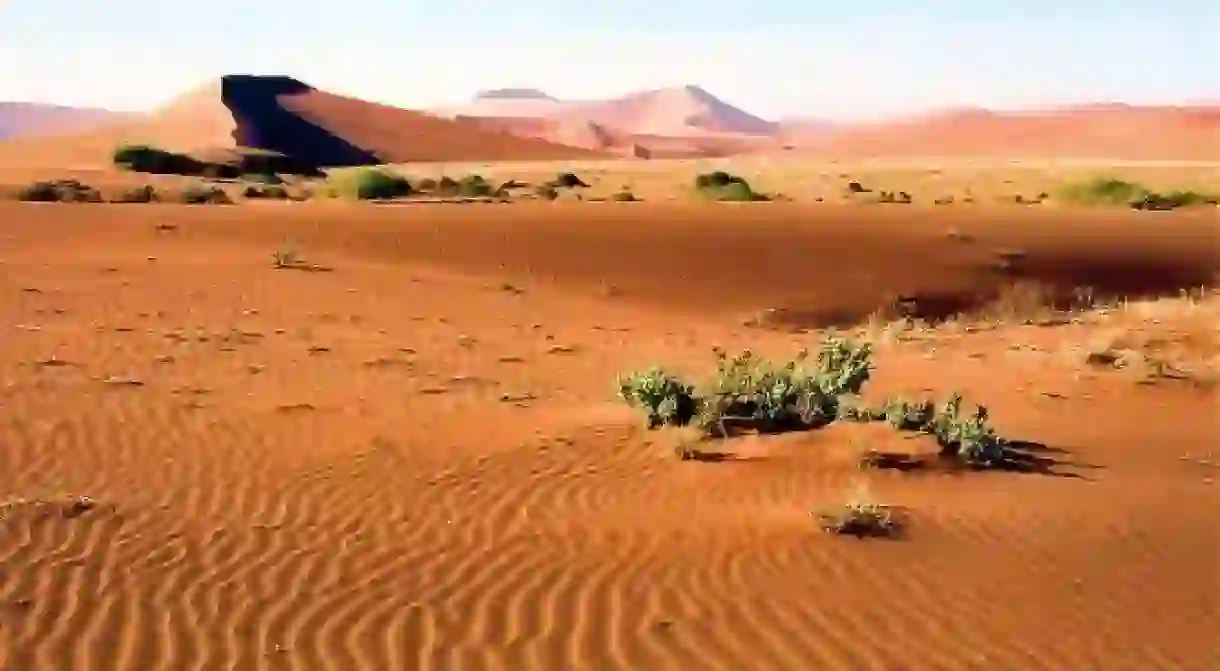Buried Memory In Namibia's Seas Of Sand

Namibia‘s deserts are inseparable from its identity: it is a home to not only diverse flora and fauna, but also to its indigenous population. However, Patrice Sweeney shows that it is not only the land that shapes Namibia’s culture, but also its memory of the past.

Namibia is home to two of the world’s most famous deserts. One, the Namib Desert, is the oldest on the planet; its country’s namesake, it ripples along the Atlantic with as many crests and waves as the ocean itself. It is a red tide of gritty surf and abrasive crests made entirely of sand.
The younger desert, the Kalahari, translates into ‘the great thirst,’ which aptly captures this barren and inhospitable wasteland. During the dry season unimaginable thirst comes upon the angular and abrasive piles of parched earth; the rainy season, however, brings with it torrential rains cause the land to shake off its mantle of tired destitution, emerging as the lifeblood of an array of flora and fauna, such as the skittering meerkat and skulking hyena.

Like its deserts – with their contradictory characteristics of being both barren and nurturing – Namibian history is deeply imprinted by the web of various cultural influences that has shaped it. Namibian culture amalgamates, often tensely, the indigenous Khoi and much-mythologised Bushmen; the Bantu-speaking groups; as well as the long-lasting memories imprinted by repressive German colonial rule and South African apartheid. European powers hungry for land, resources, and status jostled with each other in the Scramble for Africa: from 1884, Namibia was claimed by Germany as a protectorate. The strains of colonial domination exploded in 1904 as the Nama and Herero peoples of Namibia rebelled and were brutally defeated and subjugated. For those fleeing the pursuing German army, the desert became a cruel burial ground.
It is an uncomfortable history, and one easily superseded by the promise of safari tours that entice the visitors that fuel Namibia’s economy and by the allure of its mineral resources — especially diamonds — that draw investors. The dearth of Namibian literature in translation allows their voices to be forgotten or ignored. But the latent history that forms the bedrock for modern-day Namibia is as inseparable from the land as are its seas of sand.













